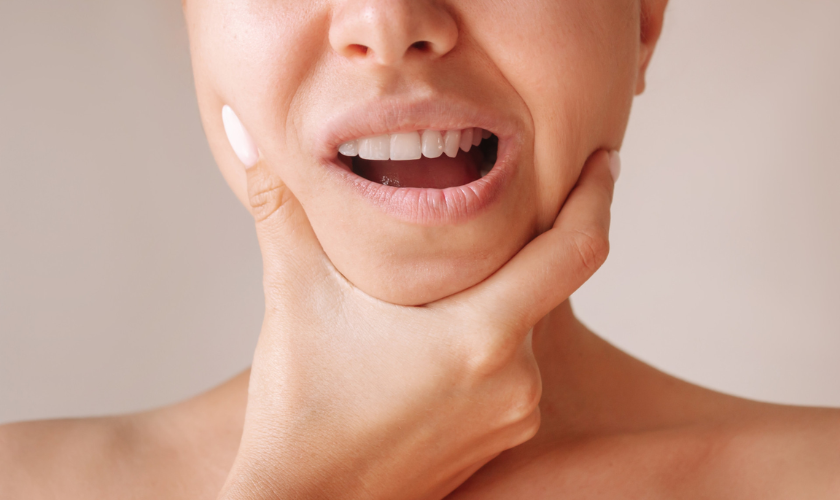
February 29, 2024, By Virginia TMJ Facial Pain and Sleep Center
Do you frequently experience discomfort or pain in your jaw? Whether it’s due to stress, dental issues, or temporomandibular joint (TMJ) disorders, living with jaw pain can significantly impact your daily life. Fortunately, there are ways to address this issue effectively and achieve lasting relief. In this article, we’ll explore various strategies to help you get rid of jaw pain permanently, from simple home remedies to professional treatments.
Understanding Jaw Pain: Causes and Symptoms
Before delving into solutions, it’s essential to understand the underlying causes and symptoms of jaw pain. Common triggers include temporomandibular joint disorders (TMJ), teeth grinding (bruxism), dental problems, arthritis, injury, stress, and muscle tension. Symptoms may range from mild discomfort and clicking sounds when opening the mouth to severe pain, headaches, and difficulty chewing or talking.
Effective Strategies for Permanent Relief
Practice Good Oral Hygiene: Start with the basics – maintain excellent oral hygiene by brushing and flossing regularly. Poor dental health can contribute to jaw pain, so visit your dentist Glen Allen for routine check-ups and address any underlying issues like cavities or gum disease promptly.
Apply Warm Compresses: Ease muscle tension and promote relaxation by applying warm compresses to your jaw area. This can help alleviate pain and increase blood flow to the muscles, promoting faster healing.
Try Jaw Exercises: Gentle jaw exercises can strengthen muscles and improve flexibility, reducing pain and stiffness over time. Simple techniques like opening and closing your mouth slowly, moving your jaw from side to side, and gently massaging the jaw muscles can be beneficial.
Avoid Trigger Foods: Certain foods, particularly those that are hard, chewy, or sticky, can exacerbate jaw pain. Opt for softer, easier-to-chew options and cut food into smaller pieces to reduce strain on your jaw muscles.
Manage Stress: Stress is a common contributor to jaw pain, as it often leads to clenching of the jaw or teeth grinding. Practice stress-reduction techniques such as deep breathing, meditation, yoga, or engaging in hobbies to relax your mind and body.
Use Mouthguards: If you grind your teeth at night (bruxism), wearing a mouthguard while sleeping can help prevent further damage to your teeth and alleviate jaw pain. Talk to your dentist about getting a custom-fitted mouthguard for optimal comfort and effectiveness.
Seek Professional Treatment: If home remedies aren’t providing sufficient relief, consider seeking professional treatment options. This may include physical therapy, prescription medications, injections, or dental procedures to address underlying issues like misalignment or TMJ disorders.
Frequently Asked Questions (FAQs)
Q: Can jaw pain go away on its own?
A: In some cases, mild jaw pain may resolve on its own with rest and self-care measures. However, chronic or severe jaw pain often requires intervention to alleviate symptoms and address underlying causes effectively.
Q: How long does it take to get rid of jaw pain permanently?
A: The duration of treatment varies depending on the cause and severity of the jaw pain. While some individuals may experience relief relatively quickly with conservative measures, others may require more extensive treatment and lifestyle adjustments for long-term management.
Q: Are there any natural remedies for jaw pain?
A: Yes, several natural remedies can help alleviate jaw pain, including warm compresses, jaw exercises, stress management techniques, and dietary modifications. However, it’s essential to consult with a healthcare professional to determine the most suitable approach for your specific condition.
Take Control of Your Jaw Health
Don’t let jaw pain dictate your quality of life. By implementing these effective strategies and seeking professional guidance when needed, you can overcome jaw pain and enjoy lasting relief. Remember to prioritize self-care, maintain good oral hygiene, and listen to your body’s signals. If you’re experiencing persistent or severe jaw pain, consult with a healthcare provider for personalized evaluation and treatment recommendations. Take the first step towards a pain-free future today!
